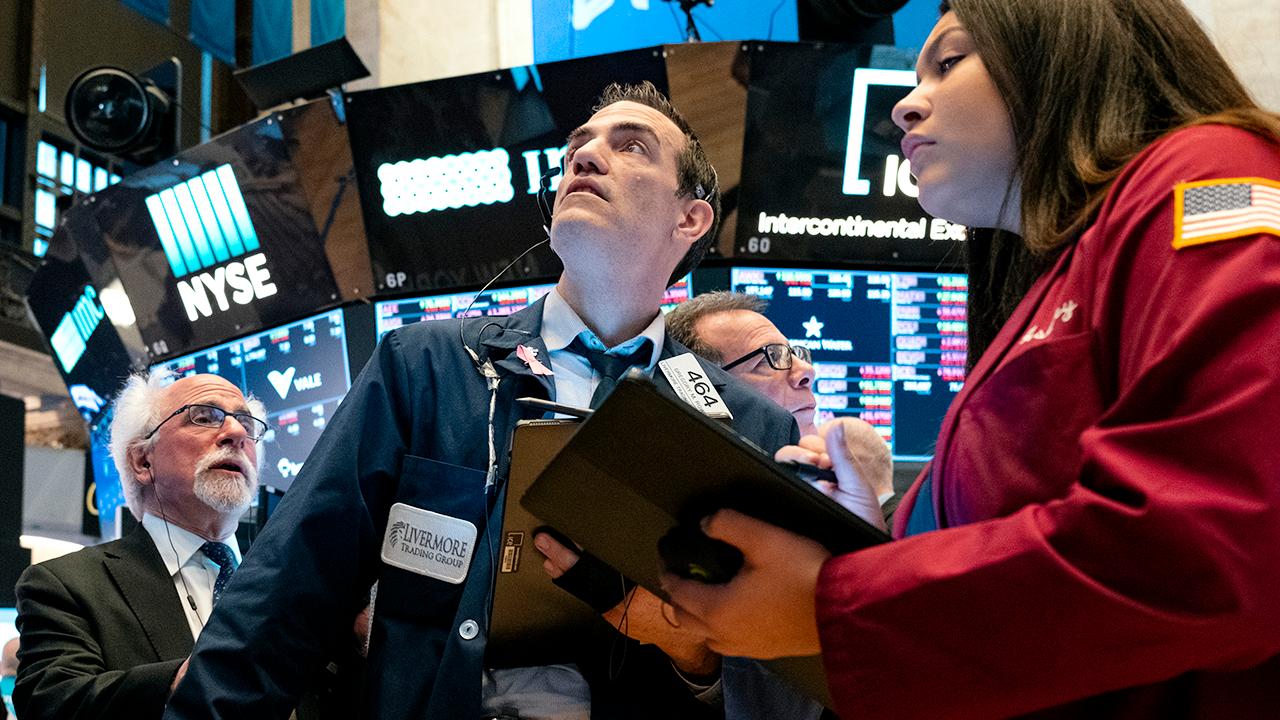Stock futures waver ahead of retail earnings, housing numbers
New-home construction data is likely to offer fresh insights into strength of U.S. housing market
U.S. stock futures wobbled Tuesday, with investors awaiting further developments on the stimulus package and U.S.-China trade relations amid thin trading volumes.
Futures tied to the S&P 500 wavered between muted gains and losses, a day after the benchmark stopped just shy of a record. Overseas, the Stoxx Europe 600 edged up 0.1%.
GET FOX BUSINESS ON THE GO BY CLICKING HERE
“This is a typical August, where things are very, very slow,” said Seema Shah, chief strategist, Principal Global Investors.
Earnings results for Home Depot and Walmart, scheduled to be released after 6 a.m. ET, are likely to attract attention while the U.S. corporate earnings season winds down. Home Depot in particular has benefited from a rise in home remodeling among Americans during the coronavirus lockdowns.
Investors will also get fresh insights into the health of the U.S. housing market at 8:30 a.m. ET, when the Commerce Department will issue figures on housing starts for July. Economists estimate that the measure of new-home construction increased 3.7% in July from the previous month. That would follow a surge for home building in June, when starts jumped 17.3% over the month.
Concerns about the prospects for a new spending bill from Congress are weighing on markets, with negotiations reaching what appears to be a stalemate. Senate Majority Leader Mitch McConnell’s comments that ongoing discussions may not definitely lead to a deal, combined with media reports that Republicans are weighing further reducing the proposed stimulus amount, are sapping some of the optimism, Deutsche Bank analysts said in a note.
Investors also remain wary that the rift between Washington and Beijing may deepen after the U.S. Commerce Department issued new rules curbing Huawei Technologies’s access to foreign-made chips Monday. The step expanded the Trump administration’s restrictions on the Chinese telecom company’s link to crucial components. The new rules prohibit non-U. S. companies from selling any chips made using U.S. technology to Huawei without a special license.
“The one thing that is weighing on people’s minds is the U.S.-China trade tensions,” Ms. Shah said. “Investors knew that tensions would rise in the run-up to the elections, but not that there would be concrete actions,” she said.
The fresh restrictions have “potentially large implications” for technology companies, Ms. Shah said. That could have broader market implications, as technology stocks have driven the market rally in the U.S. and in Asia.
The recovery in major stock benchmarks in recent months has been mirrored by improved credit conditions, both fueled by central banks’ steps to ease borrowing conditions. Still, investors and analysts remain wary of how sustained the rallies will prove to be against an uncertain economic backdrop and tensions between Washington and Beijing.
“It’s extraordinary when you think second-quarter 2020 was the deepest quarterly contraction we’ve seen” in the U.S. and European economies, said Tomas Hirst, European credit strategist at CreditSights. The rate of economic recovery is likely to slow later in the year, he said. “As we get into September, it may make sense to reduce risk so you’re not rushing for the doors if sentiment changes in the fourth quarter.”
In bonds, the yield on the benchmark 10-year U.S. Treasury extended its decline to 0.667%, from 0.683% Monday, suggesting that investors may be losing some of their risk appetite.
In Asia, most major equity benchmarks ended Tuesday on a muted note. The Shanghai Composite Index rose 0.4% to hit its highest since February 2018. That built on Monday’s advance, which was fueled by China’s central bank injecting fresh funds into the financial system.
CLICK HERE TO READ MORE ON FOX BUSINESS
Daniel So, a strategist at China Merchants Bank International, said the central bank’s action showed China wouldn’t tighten monetary policy. But he said it was also unlikely to ease much further.
“Instead of rolling out massive monetary easing, I would expect China to launch more targeted fiscal measures to stimulate domestic consumption and boost infrastructure spending,” Mr. So said.
Chinese stocks hit multiyear highs last month, on optimism about economic recovery and signs of official support for a rallying market, before handing back some gains. However, Mr. So said China’s growth prospects remain uncertain, amid a global downturn and tensions with the U.S.
South Korea’s Kospi Composite fell 2.5% on growing concerns about a rise in local coronavirus infections.
—Joanne Chiu contributed to this article.
Write to Anna Isaac at anna.isaac@wsj.com




















